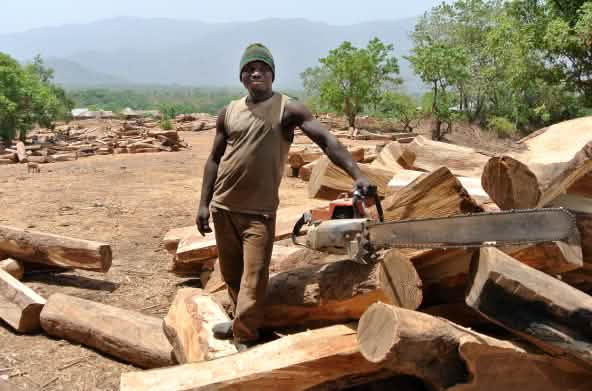
Completed campaign
Brazil: trading nature for eucalyptus?
Maned wolves, rheas, tapirs – the Cerrado is the home of many rare species. The savannah in Brazil’s heartland is also home to indigenous communities and small farms. Yet the Cerrado is threatened by industrial soy farming, cattle, and now, eucalyptus plantations. Please call on the Brazilian authorities to prevent further destruction.
To: National Institute for Colonization and Agrarian Reform (INCRA) and the Institute for Colonization and Land of the State of Maranhão
“Protect the Cerrado, grant land rights to its traditional communities and prevent eucalyptus plantations”A spokesperson for the farmers spells it out: “Suzano is destroying our homes and livelihoods, our orchards and medicinal plants, the wild animals and even the beauty of nature.”
Roughly two thirds of the Cerrado have already been cleared by the soy industry, slashed and burned by cattle ranchers, or consumed as raw material for charcoal. Now, the Brazilian paper and cellulose manufacturer Suzano is clearing the Cerrado to make way for eucalyptus monocultures.
World Rainforest Movement (WRM) visited the Baixo Parnaíba region in the Brazilian state of Maranhão. Suzano has already staked a claim to 30,000 to 40,000 hectares of land. A total of 560,000 hectares of eucalyptus plantations are planned for northeastern Brazil.
According to WRM, the corporation not only wants the wood for its paper mills, it also intends to break into the lucrative energy market by selling the pulped trees to power plants and wood pellet manufacturers in Europe. The EU’s renewable energy policy promotes the use of wood as fuel.
The eucalyptus monocultures are a disaster for the Cerrado and its inhabitants. Very few other plants or animals can survive there. The plantations also ruin the soil and local water resources. Their enormous water consumption depresses the water table and dries out bodies of surface water.
Local inhabitants are also being displaced. Suzano is exploiting the fact that many farmers and rural communities do not hold official titles to the land they have farmed for generations. The government is going over the heads of the traditional communities and awarding land concessions to the company.
Please support the inhabitants of the Cerrado and speak out to the Brazilian authorities by signing the WRM petition.
About Suzano
According to its own figures, the Brazilian paper and cellulose manufacturer Suzano manages over 800,000 hectares of tropical forests and plantations. The latter already cover 346,000 hectares in the Brazilian states of Bahia, Espírito Santo, São Paulo, Minas Gerais, Maranhão, Tocantins and Piauí.
Suzano’s timber plantations are geared toward maximum biomass yield, with up to 8,000 eucalyptus trees per hectare (100 x 100 meters), according to World Rainforest Movement. Furthermore, the company is working with eucalyptus strains with modified chemical properties for higher energy yield. Suzano is also conducting laboratory experiments with genetically modified trees.
Wood fuel and pellet boom in Europe
The EU is promoting the use of wood as a fuel on a grand scale. The use of this supposedly renewable resource is intended to protect the climate. By now, roughly half the wood harvested in Germany, for example, is no longer used for construction or furniture, but instead heats private homes and fuels wood-burning power plants – and this share is on the increase.
Not only traditional firewood is consumed in this manner – pressed wood pellets are also gaining ground as fuel. As of last year, 320,000 pellet furnaces were in operation in Germany alone, and consumed 1.5 million tons of wood pellets. The use of wood shavings and pellets is also becoming more prevalent in power plants. While pellets used to be made from scrap wood and sawdust, the use of timber from clear cutting and industrial plantations is becoming more common.
In countries like Germany, booming demand for wood as fuel has long since outstripped the yield of domestic forests. Germany is now importing biomass from eastern Europe, Canada and the United States. Brazil is also slated as a source. Destroying intact ecosystems to make room for industrial timber monocultures, pulping valuable logs and entire trees and shipping the resulting material around the globe is ecological insanity.
The environmental program of the United Nations has warned that high demand for biomass in developed countries will lead to the conversion of vast swathes of land in the global South into industrial monocultures:
Original petition to the Brazilian authorities on the World Rainforest Movement (WRM) website
Further information about Suzano’s eucalyptus plantations:
The Ecologist: Biomass: the chain of destruction
World Rainforest Movement study: Eucalyptus plantations for energy: A case study of Suzano’s plantations for wood pellet exports in the Baixo Parnaíba region, Maranhão, Brazil
To: National Institute for Colonization and Agrarian Reform (INCRA) and the Institute for Colonization and Land of the State of Maranhão
Dear Mr. Sodré Rodrigues, dear Mr. Fonseca,
I call on you to support small farmers and traditional communities in the Baixo Parnaíba region by granting them formal titles to the land that has been their home for generations.
Please promote their use of the land in harmony and balance with nature and ensure the preservation of the remaining intact ecosystems.
Prevent the destruction of the Cerrado ecosystems by converting the land to soy monocultures or the Suzano corporation’s eucalyptus plantations.
Sincerely,

